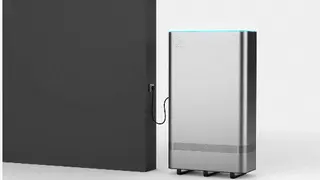Conversations around masks, gloves, sanitisers and personal protective equipment (PPEs) are showing no sign of subsiding ever since the Covid-19 pandemic took over every discourse on public health. And in a world that was trying to discourage single-use plastic before the virus struck, there is a new waste stream challenge to be dealt with — the ubiquitous coronavirus waste.
As the number of Covid-19 positive patients increases and wearing masks and gloves becomes the new normal for citizens and PPEs for sanitation workers, there is bound to be an exponential increase in biomedical waste in the country. Estimates from Wuhan, the first city to experience the virus outbreak, indicate that biomedical waste saw a five-fold increase from 40 tonnes a day to 240 tonnes.
In India too that is happening, although post-Covid data will only be available much later. But statistics for 2018 quoted in a Rajya Sabha statement this March is indicative. According to it, the country generated 608 tonnes of biomedical waste per day in 2018, of which 528 tonnes or 87 per cent was treated. But now, with so much coronavirus waste being added to it, it is hoped that the authorities are treating the issue as a sanitation emergency for which experts say incineration is the best choice.
But the key to treating Covid-19 waste is its effective collection. Though the Pollution Control Board has issued guidelines on how to deal with the waste and most hospitals would have a system in place, including the mandated double-layered bags, the worry is about waste being generated from Covid-positive patients isolated at home, in hotels and guest houses. In housing societies, resident welfare associations too need to follow a collection protocol. It has to be ensured that Covid waste, some of which could cause new infection, does not mingle with municipal solid waste. In our country that would be disastrous as it could put waste pickers and sanitation workers at serious risk.
A collection contraption
To address the issue, Mumbai-based Biocrux India, a company that was an early mover on the plastic waste front and has set up a large number of collection and recycling units for pet bottles across the country, has built a collection contraption for Covid-19 waste.
An Internet of Things (IoT) enabled large ‘Smart Bin’, it comes with three automatically controlled mouths that open and close by touch screen instructions and waste type selection. The bins, with capacities of 420 litres, 200 litres and 220 litres, are designated for sanitiser bottles, face masks and PPE kits/flexibles respectively. “The idea was to be relevant and make what is the need of the hour. The motorised gate opens and closes, ensuring no dumping or spilling, the IOT based connect with each machine tracks its usage with login and password,” explains Ajay Mishra, the Founder Director and CEO.
When the bin is full, the sensor on the machine informs the central clearance system so that a specialised biomedical waste pick-up van can attend to the contents. “It gives you all the data and since this is bio medical waste and needs to be incinerated, you can hand-hold the waste according to State policies,” says Mishra, who feels that the smart bin is best for collection of Covid waste in housing societies, corporate offices, commercial markets, hotels and for Smart Cities as we move to a new normal of masks, gloves, sanitisers and PPEs when the lockdown slowly opens up. In fact, interest for the product has been generated in several Smart Cities, including Amritsar and Indore.
The smart bin also comes with another choice of putting in your name and mobile number for loyalty programmes and green points in case the local governance system wants to reward re-users and conduct a campaign around such initiatives. Its best use, of course, will come from segregation of this waste from every day municipal solid waste and saving sanitary workers from having to handle it.








Comments
Comments have to be in English, and in full sentences. They cannot be abusive or personal. Please abide by our community guidelines for posting your comments.
We have migrated to a new commenting platform. If you are already a registered user of TheHindu Businessline and logged in, you may continue to engage with our articles. If you do not have an account please register and login to post comments. Users can access their older comments by logging into their accounts on Vuukle.